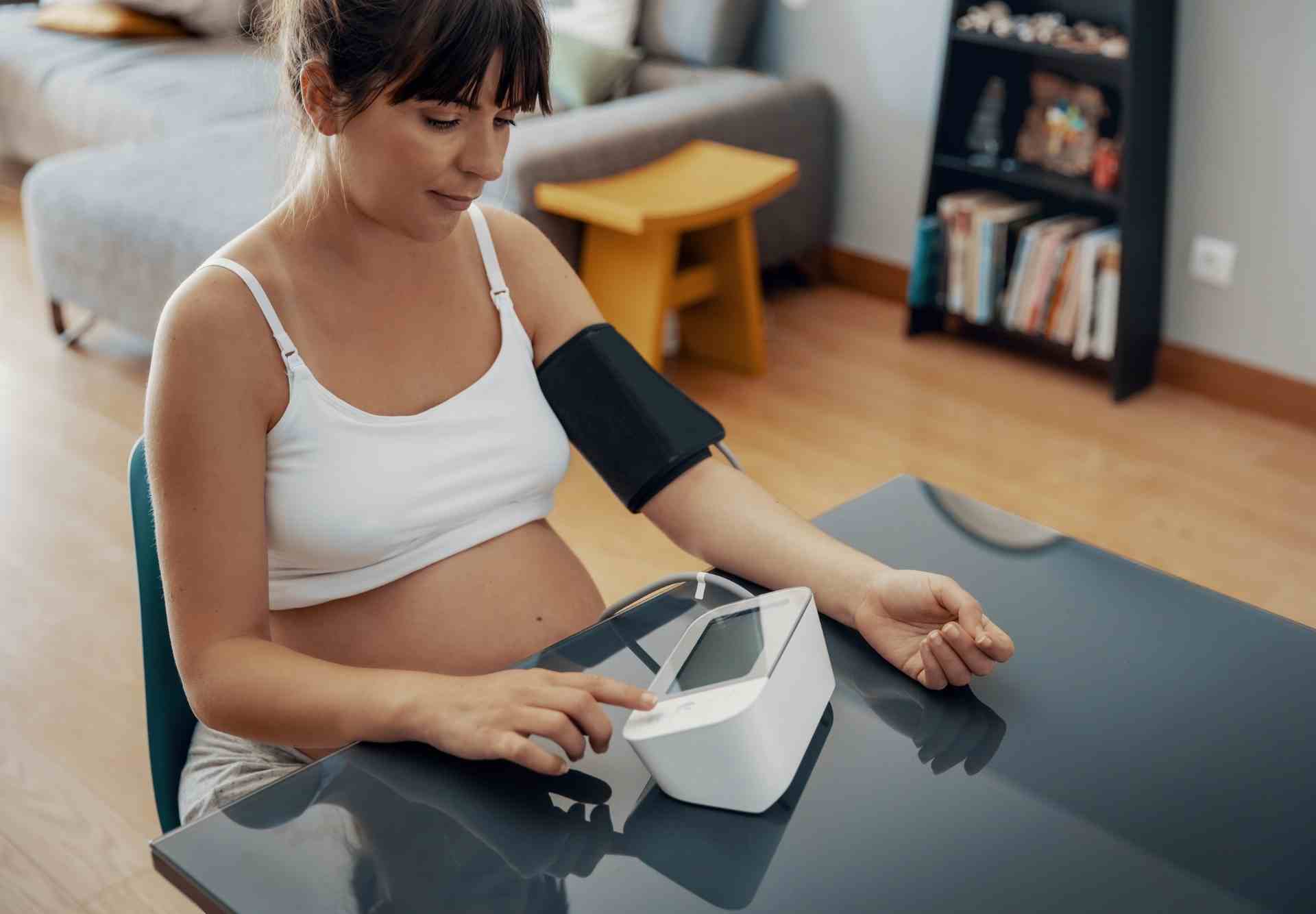Preeclampsia causes high blood pressure, and liver and renal dysfunction. Preeclampsia can cause early birth and be lethal for mother and child if untreated. Researchers identify potential biomarkers for Preeclampsia.
To aid in the early diagnosis of preeclampsia, a study published in 2020 in Scientific Reports discovered that CMP (Circulating Microparticles) features within the placenta are likely to be different for pregnancies that result in preeclampsia.

Preeclampsia is a potentially fatal pregnancy condition, and researchers have identified indicators that could aid in its early detection. The study indicated that during the 10th or 12th week of pregnancy, CMP proteins within people that would eventually be diagnosed with preeclampsia already varied from those with healthy pregnancies.
What Are CMPs?
According to researchers, virus-sized CMPs are thought to serve as a “mediator” of cellular function. It is possible to gain insight into the composition of tissues by analyzing fluids containing these particles, such as saliva, sperm, and spinal fluid.

*Image source: Unsplash/Pixelbay/Pexels
Researchers found that a more severe form of preeclampsia was also associated with proteins that are connected to immune system malfunction and possibly another dysfunction connected to blood platelets after isolating and studying four particular proteins among their patients.
A cure for preeclampsia has not been found yet because treatment has not improved substantially in the last century. Currently, once diagnosed, the primary treatment is delivery.
Define preeclampsia

The mother and the unborn child are both badly impacted by preeclampsia. The development of hypertension and proteinuria are the hallmarks of this illness. The latter is characterized by excessive protein in the urine, which can be harmful since it impairs kidney function.
This illness is hazardous and should be addressed seriously despite its low prevalence; it affects fewer than 10% of pregnant women. These are some examples of possible warning signs:

- Headaches
- Abdominal pain
- High blood pressure
- Lack of urination
- Changes in vision
- Uncontrollable bleeding or bruising
Due to its potentially fatal character, preeclampsia continues to be a major cause of maternal mortality. Extreme headaches, discomfort, convulsions, respiratory arrest, uncontrollable bleeding, multiple organ failure, stroke, and death can result from untreated preeclampsia in the mother. Preeclampsia poses risks to the unborn child as well as the pregnant woman. There are also risks to the fetus, such as a fetus not developing normally, placental difficulties, and even fetal mortality.
Threat Factors for Preeclampsia

Preeclampsia is most commonly associated with obesity, prior preeclampsia, and a history of hypertension, all of which are known risk factors. A higher rate of preeclampsia is seen in the black community compared to the white community.
However, identifying more potential gene markers may aid in identification because scientists believe it is a polygenic disorder, meaning it results from mutations in numerous genes rather than a single gene. This makes it challenging to identify the specific gene(s) responsible for preeclampsia risk. Several genes have been singled out as having possible links to the disease.
When a Diagnosis Is Made, What Options Do We Have?

*Image source: Pixelbay/Pexels/Unsplash
Prescribed aspirin is one of the few options for preventing the illness from occurring during pregnancy, but it may not be safe for every expecting mother. However, aspirin should not be taken without first consulting a doctor because it can increase the risk of serious bleeding if taken incorrectly.
A strong headache, severe abdominal pain, especially if right-sided, loss of vision or changes in vision, infrequent urine, problems with bleeding, or difficulty stopping bleeding are all emergency situations that require rapid medical attention.

Preeclampsia is not always preventable, but there is growing information on risk factors that can help those who want to carry a pregnancy make informed decisions about whether or not to do so and whether or not to take preventative measures like keeping blood pressure and weight in a healthy range.
Meaningful articles you might like: Studies Show Covid-19 Can Double Pregnancy Complications, What You Should Know About Monkeypox and Pregnancy, Must Knows About BA.2 and Pregnancy

